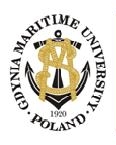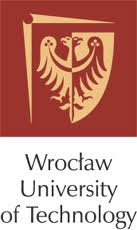
|
ICCCI 20113rd International Conference onComputational Collective Intelligence - Technologies and Applications21-23 September 2011, Gdynia, Poland |
 
|
Proceedings
|
Special Session on Computational Swarm Intelligence - Discovering Relationships in Data (CSI 2011)IntroductionComputational Swarm Intelligence algorithms, often inspired by communication and interaction between social agents such as ants or bees, play important role in Artificial Intelligence. Different learning and adaptive mechanisms incorporated in these techniques (applied in real-world applications), are the research area that currently becomes the main field of Computational Collective Intelligence. Topics of interestsThe session will gather experts in adjacent and seemingly related fields of:
This session proposes that Computational Swarm intelligence is an autonomous aggregate of techniques that so far have not been unified, especially in the context of efficient applications. We are looking for a mathematical, algorithmic framework which will enable us to understand and analyze these algorithms and the self-adaptive mechanisms and learning schemas. The session will seek to define the metaheuristics of Computational Swarm Intelligence algorithms. A common framework is desirable for a number of reasons, including the following:
The session aims at addressing such issues from a heuristic, practical and theoretical perspectives. The following contributions are welcomed:
Information for authorsThe submitted papers should present results of the original and unpublished research. The papers will be reviewed by the ICCCI 2011 International Program Committee. The best submissions will be selected for presentation and will be included in the conference proceedings. The conference proceedings are planned to be published and distributed by Springer-Verlag in series LNCS/LNAI. Submitted papers should be prepared in LNCS/LNAI style and should be limited to 10 pages. All papers must be submitted electronically via conference submission system. Important dates
OrganizersDr. hab. Urszula Boryczka Dr. hab. ing. Mariusz Boryczka Dr. Marcin Budka Dr. Katarzyna Musiał Dr. ing. Radomil Matoušek Institute of Automation and Computer Science, Dept. of Applied Computer Science, University of Technology Brno, Czech Republic E-mail: matousek@fme.vutbr.cz
|
